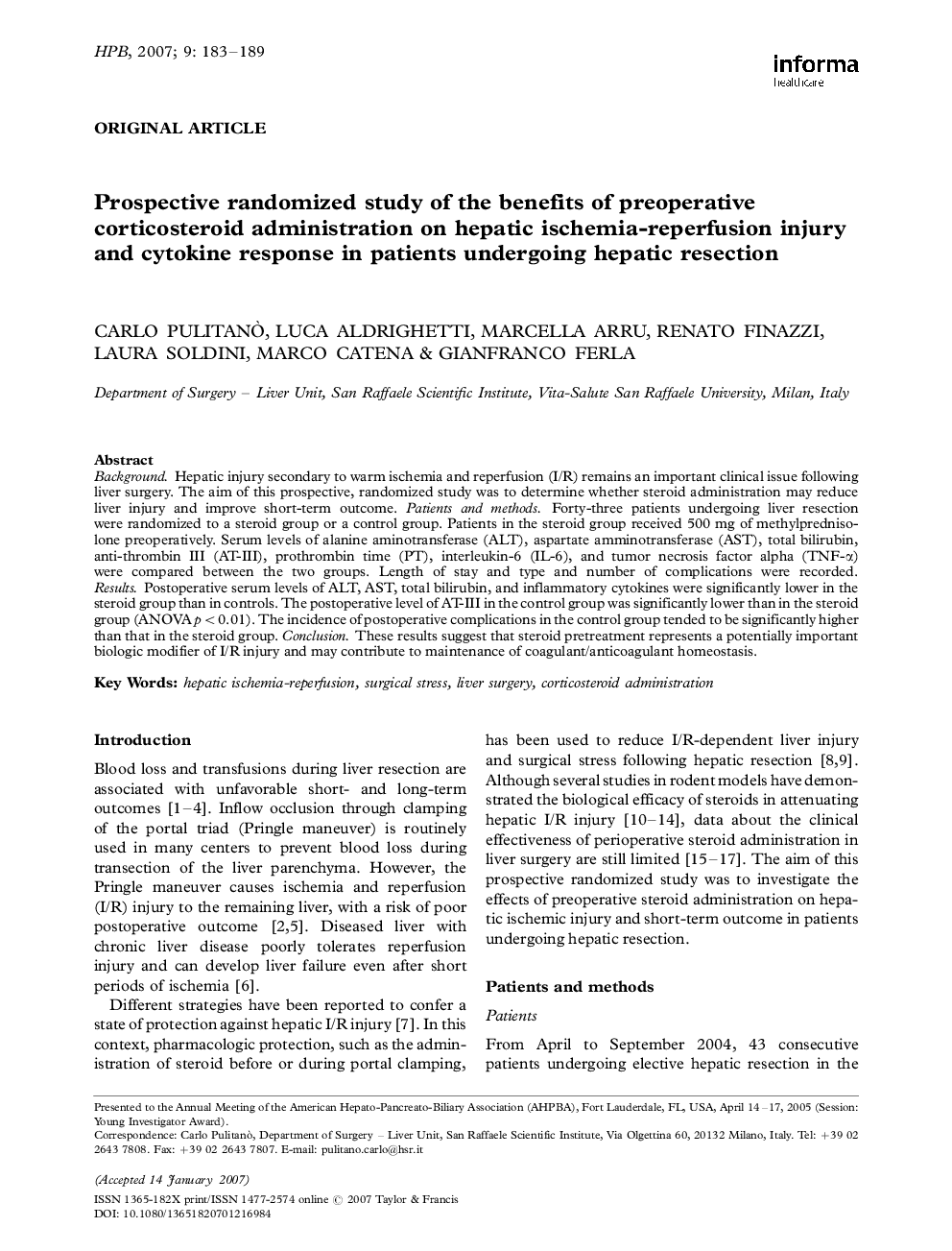| Article ID | Journal | Published Year | Pages | File Type |
|---|---|---|---|---|
| 3270037 | HPB | 2007 | 7 Pages |
Abstract
Background. Hepatic injury secondary to warm ischemia and reperfusion (I/R) remains an important clinical issue following liver surgery. The aim of this prospective, randomized study was to determine whether steroid administration may reduce liver injury and improve short-term outcome. Patients and methods. Forty-three patients undergoing liver resection were randomized to a steroid group or a control group. Patients in the steroid group received 500 mg of methylprednisolone preoperatively. Serum levels of alanine aminotransferase (ALT), aspartate amminotransferase (AST), total bilirubin, anti-thrombin III (AT-III), prothrombin time (PT), interleukin-6 (IL-6), and tumor necrosis factor alpha (TNF-α) were compared between the two groups. Length of stay and type and number of complications were recorded. Results. Postoperative serum levels of ALT, AST, total bilirubin, and inflammatory cytokines were significantly lower in the steroid group than in controls. The postoperative level of AT-III in the control group was significantly lower than in the steroid group (ANOVA p < 0.01). The incidence of postoperative complications in the control group tended to be significantly higher than that in the steroid group. Conclusion. These results suggest that steroid pretreatment represents a potentially important biologic modifier of I/R injury and may contribute to maintenance of coagulant/anticoagulant homeostasis.
Related Topics
Health Sciences
Medicine and Dentistry
Endocrinology, Diabetes and Metabolism
Authors
Carlo Pulitanò, Luca Aldrighetti, Marcella Arru, Renato Finazzi, Laura Soldini, Marco Catena, Gianfranco Ferla,
